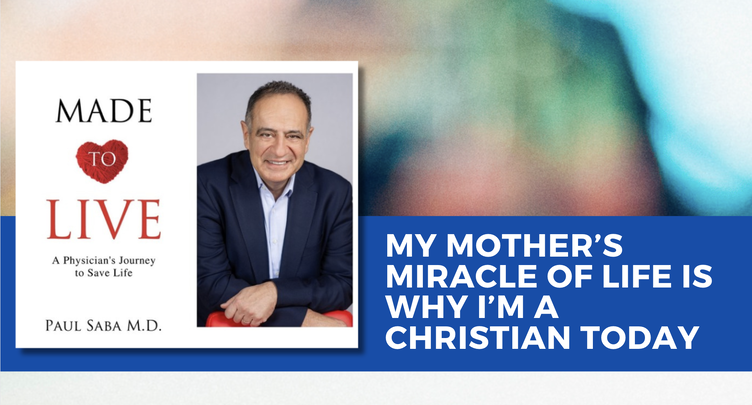[This article was originally published on LifeNews.com in November 2023]
Earlier this year, I spoke at a National Right to Life conference, where little did I know I would meet Paul Saba, whose book, Made to Live, would drastically influence my views on the significance of life. He presented a workshop about MAiD (Medical Assistance in Dying), the tragic reality of a Canadian government physician-assisted suicide program.
After reading Saba’s book, I was compelled to rethink what being fully pro-life looks like. I was struck by the realization of how serious a problem it is that physician-assisted suicide and elements of euthanasia are legal in some American states.
Saba did a wonderful job of explaining the worth of human life from a Christian perspective. His own journey of learning to appreciate life is encouraging, but to avoid publishing a spoiler for Made to Live, I choose to share my own story of discovery.
My mother, in her senior years, had many health issues. During one hospital stay, it led to her being placed on life support. Despite needing a team of specialists, not one of them could tell me what was going on with my mom. All I knew was that if we took her off life support, she would likely die.
It was a very scary time for my father and me, who were not yet Christians. Even though we did not know what would happen after she died, we made the decision to remove her from life support because it appeared that she could not survive without it. When we shared our thoughts with my mother, we were surprised to discover that she was at perfect peace with the decision.
A longtime follower of Christ, she was ready to meet Jesus that very day if that was His will for her. The good news for my dad and me was that my mother lived for many more years after that decision to remove her from life support. God granted us the gift of more time with this precious woman. In large part due to this miracle, I became a Christian, and I learned to love my mother even more, now drawn closer by the fact that she was not just my mother, but my sister in Christ. I was able to see with fresh eyes the beautiful treasure that life is.
We often think of people as individuals, but Saba reminds us how one life touches many. Each person is a grandparent, parent, child, friend, or neighbor. One life affects many. Sadly, Saba points out, a culture that accepts euthanasia as a normal part of society does not appreciate or esteem life. That worldview classes humans as utilitarian objects, based on the “quality” of a life or its “useful contribution” to the community. What I found most alarming is that our doctors are the ones charged with the task of killing. These are the same doctors who take the Hippocratic Oath to enhance, extend, and protect life when possible through the best care and treatment. These doctors are given a license to save lives, yet they are also licensed by some governments to take lives.
While Saba eloquently exposes the myth of “kind” physician-assisted suicide, he ultimately brings us to the desire to defend and protect life. He does not irrationally claim that we can avoid death, but rather that our lifespan is not determined by any human being but by the will of God. The Bible says in Psalm 139:16, “your eyes saw my unformed body; all the days ordained for me were written in your book before one of them came to be.” When I became a Christian, I realized that we must esteem the value of life far higher than our society dictates. Saba addresses the value of people born with disabilities, deformities, and disease. He encourages us to remember that they are just as valuable as each one of us. Why? Because they are people and that is what makes them precious. All humans are equally valued by God and can partake in the work of His kingdom whether they only live a few months or decades.
I will always remember one night when I was riding home from a fellowship dinner at my church. I was on the same bus as several of the women who had attended the dinner. I got to talking with one of them and discovered that she had a severely disabled grandson. The boy needed much help, yet he brought great joy to those around him. I will never forget her exclamation, “He’s only two years old and he already has his own ministry!”
Jesus instructs us to be His hands and feet, so that we may be used for His glory and the advancement of His kingdom. We do not know all of the ways that God can work through the lives of His children, and that is why we cannot ever assume someone’s life should be taken for granted. We are all here for a Divine Appointment. Thank you to Dr. Paul Saba for sharing that eternal truth in his book Made to Live.

